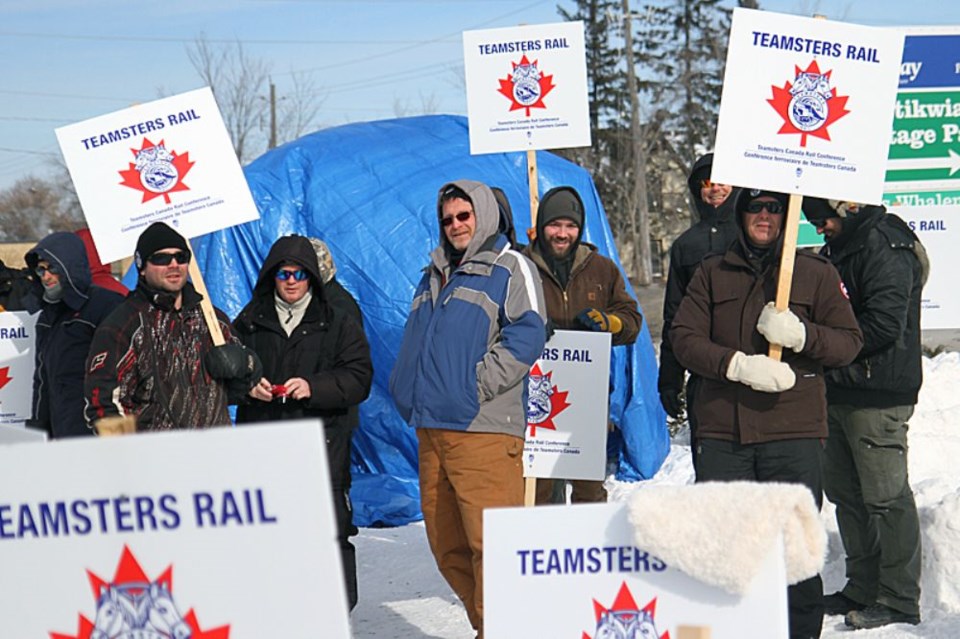THUNDER BAY -- Local locomotive engineers and train workers at the Canadian Pacific Railway are joining their co-workers across the country on the picket line.
More than 3,000 workers, including about 100 in Thunder Bay, officially went on strike Sunday after talks between their union and the company failed to reach a deal by the midnight deadline. The workers are represented by the Teamsters Canada Rail Conference.
Local union representative Dale Roberts said members are on strike in search of better protections and regulations for how often they’re forced to work.
Under current conditions the workers are frequently overworked, which poses a significant public safety risk, he said
“This isn’t a monetary issue for our members. We’re not out here for a 10 or 15 per cent raise,” Roberts said on the picket line outside the C.P.R. Station on Syndicate Avenue.
“We’re out here because we live in these communities and we don’t want to see a quarter of the block blown up because somebody is so tired they can’t make the right decision running a train and something happens.”
He said the demands of the job are compounded by having an unreliable schedule where workers don’t know when they’ll be needed or how long they’ll be working.
“Our members are chronically fatigued when they’re coming to work,” Roberts said.
“If that phone rings you have two hours to prepare to go to work. You could be at work for eight hours, 10 hours or 12. If you’re taking a trip to Ignace a round trip can be 24 to 30 hours. You have no idea how long you’re going to be away from home.”
Instead he would like to see a schedule where workers have a 12-hour availability window where they can be called in but once those 12 hours pass it closes. Then a different group of workers would be eligible to be called in.
The company had contingencies in place to continue operations across the country, with management and other personnel taking over the duties of the striking workers.
The Canadian Press reported late Sunday afternoon the federal government intended to introduce legislation on Monday to force the workers to return to their jobs.
Labour Minister Kellie Leitch had been involved in the negotiations last week.
In a statement issued Saturday night, Leitch made it clear that the government was prepared to end the strike quickly.
"Due to this reckless disregard for Canadians, and the Canadian economy, our government will review all available options to end any work-stoppage expediently, up to and including the introduction of legislation in Parliament," she said.
Roberts said though he had no doubt management had passed the proper training and certifications, there is no substitute for the experience provided by workers who have spent years on the rails.
“As a locomotive engineer I spent six months training, running up and down the run memorizing things and learning how to handle trains,” he said of when he first started.
“These people, I would be greatly shocked if they’ve had more than six trips, never mind six months of training.”
The workers were last on strike in 2012 before the dispute was resolved through arbitration.
With files from The Canadian Press
